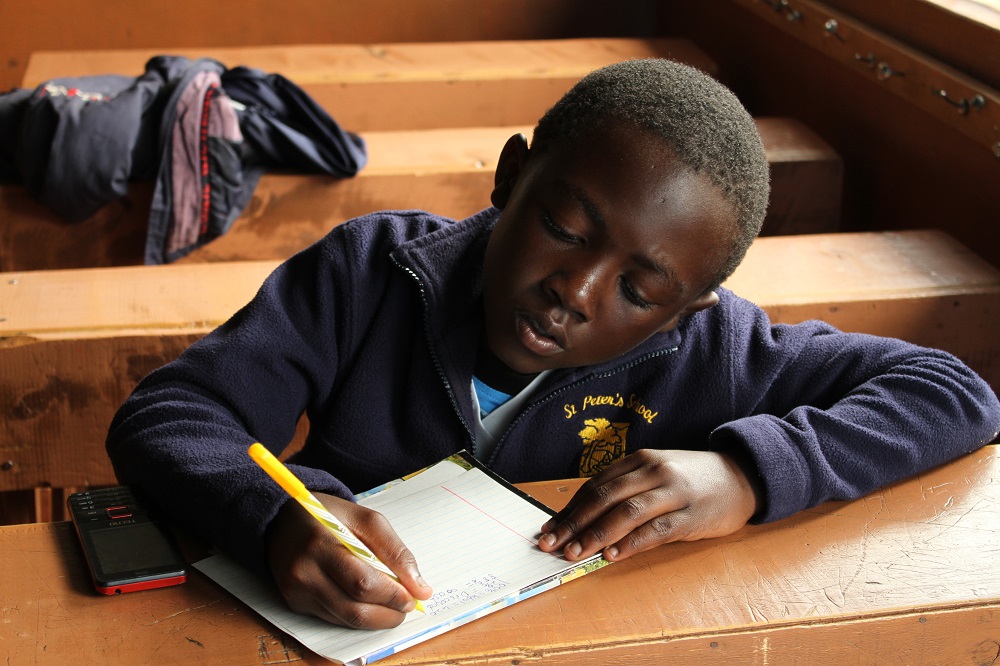As with the African e-health space, ed-tech on the continent has received a bit of a boost from the lockdowns enforced by the COVID-19 pandemic.
A database published by the EdTech Hub back in May demonstrated that use of ed-tech products serving African countries doubled over the course of the previous month, as schools across the continent closed their doors.
With the average number of child users of ed-tech users increasing by 97 per cent since in the wake of school closures, ed-tech startups received a welcome boost. Wesley Lynch, chief executive officer (CEO) of South African e-textbooks provider Snapplify, testifies to the speedy growth.
“We saw many new first time users. Some people on the fence have adopted e-learning for next year as the norm,” he said. “There is more support for teachers, and acceleration into technology investment.”
It is not just content where uptake has been seen, however. Bola Lawal runs ScholarX, a Nigerian scholarship management platform, and he says interest in ed-tech in general has been spurred by COVID-19 and the changes it wrought.
“Remote learning has created new opportunities and investments from the public sector. Governments are funding initiatives to help the masses access learning, and this has created new opportunities,” he said.
This sudden uptake is more than welcome, says Doug Hoernle, a veteran of the ed-tech space and CEO of South African school payments app Karri.
“It’s been a tough run, but the upheaval within the ed-tech space has been fantastic. There’s been an inevitable shift to a digital world, be it how we buy our groceries or how we pay our child’s school fees,” he said.
“Simple normalities of life pre-COVID simply do not exist anymore – adapting to a new normal, albeit stressful and full of unknowns, is refreshing and I think a good step in the right direction when it comes to technology.”
The ed-tech space had been generally growing before the pandemic, yet the shot in the arm occasioned by COVID-19 is undeniable. Gabriel Ekman is managing director of Rwanda’s BAG Innovation, which helps connect university students with work experience. He said the Rwandan ed-tech scene has been booming, as it is elsewhere.
“The COVID-19 crisis has been an eye-opener for many schools to modernise their approach to learning and I believe that the traditional academic system will be completely transformed even after this pandemic. We see new ed-tech companies entering the space every day, and several of the local existing solutions thriving during these times,” he said.
There is no reason to believe that the sudden progress made will be reversed once – if – the crisis ends.
“As we watch the education and tech spaces continue to merge, we are definitely seeing more innovation, more uptake and more people receptive to the idea of these two worlds colliding. It’s clear that we are moving into a totally contactless, digital era, and watching Africa welcome in this new era is truly a fascinating and phenomenal thing to watch,” Hoernle said.
The lack of funding still hinders the space, however, unlike in health, where major funding has started to flood in. Alfred Opio is CEO of Uganda’s KAINO, which developed a homeschooling app for early childhood development (ECD) in response to the closure of schools in the country as a result of COVID-19. He says funding has not increased at all.
“This is a time of a pandemic, we should see numerous solutions in ed-tech being funded rapidly. This is the time to see many MVPs getting launched, but it’s not the case,” he said.
Lawal agrees.
“Investment is still very slow, due to the speed of return rate, and also the fact that most solutions are dependent on devices and data, and low income levels is still a key factor. User adoption is still a drag in terms of the type of the scale needed to attract big money,” he said.
The numbers confirm this. Even with the doubling of users, the products assembled in the database mentioned at the start of this article had a combined total of just 19 million regular users, compare to the at least 450 million children aged 14 or younger that live on the continent. The vast majority – 17 million – of these “users” were viewers of a TV show produced by Ubongo. Just two products had over one million monthly users – Ubongo and Eneza, an SMS-based interactive learning app.
Growth, then, remains “slow and steady”.
“The more accessibility and affordability issues are tackled, the better things will get,” Lawal said.
Nivi Sharma, who founded the recently-acquired Kenyan ed-tech eLimu, has the final word. She says the development in the sector is clear, but there is still a long, long way to go.
“As an industry, we have seen some incredible developments in the ed-tech space – the use of AI, machine learning etcetera have helped boost adaptive learning and more personalised learning interventions. But without digital access for all, we need to know that our best efforts and achievements in the ed-tech space will only deepen the inequalities and access to learning opportunities between the haves and the have-nots,” she said.


